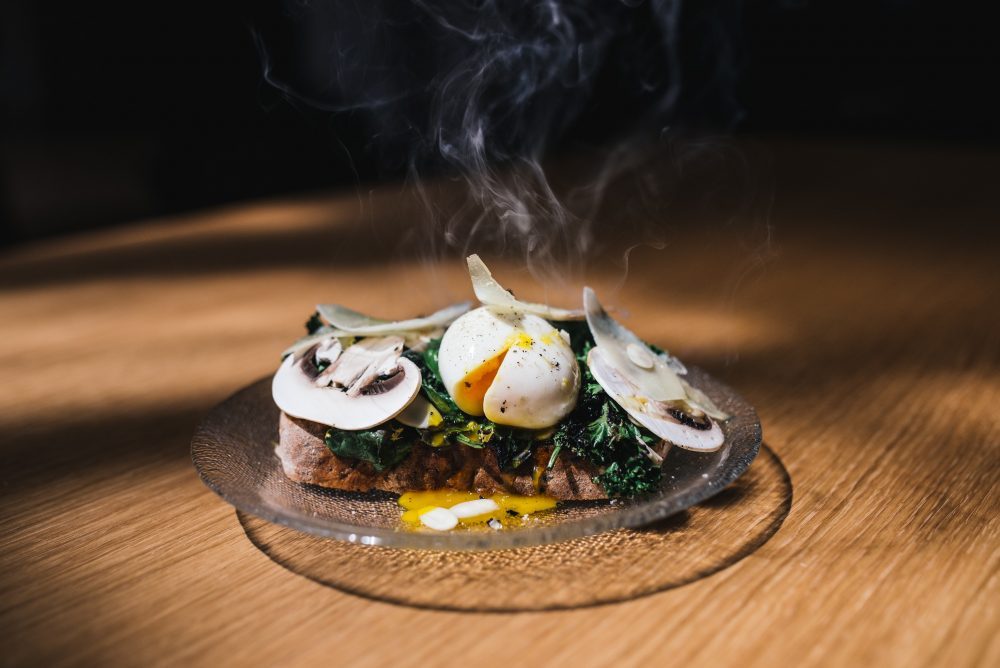Suma
Apple Cider Vinegar: Your Multifaceted Home Remedy

Apple Cider Vinegar seems to be all the rage nowadays. Primarily an ingredient used in salad dressing, to being an all-purpose cleaner for the house, to its anti-dandruff properties, this humble ingredient had its pride of place in your pantry for decades. Its versatility was known from a superficial perspective, but of late, there seems to be a growing body of evidence that supports regular consumption of ACV for its various health benefits.
Apple Cider Vinegar making is a simple two-step process: first, yeast is added to apple juice or concentrate. The yeast feeds on the sugar in the concentrate, and turns it into alcohol. Then, bacterial cultures are added to the solution, which then goes on to ferment the alcohol into acetic acid. The resultant solution is highly concentrated acetic acid with a host of proteins, enzymes, and friendly bacteria.
Benefits of Apple Cider Vinegar
Here are some of the nutritional benefits of consuming ACV, according to new medical research.
- The high amounts of acetic acid in ACV can help in better absorption of nutrients, especially green vegetables and crucifers.
- A cup of herbal, ginger, or green tea with a tsp of ACV after dinner at night has demonstrated better control of fasting blood sugar the next morning. Regular consumption of ACV helps has been shown to increase insulin sensitivity, thereby lowering and regulating blood sugar.
- ACV consumption may have equal beneficial effects on people with high blood pressure.
- Even though it is an acid, ACV in water has been helpful in some cases in combating acid reflux, as it has alkalizing properties.
- Given that its acidity is equivalent to that of human hair, ACV has been famed to be a great final rinse for your hair in the shower, helping to restore the scalp’s PH balance and combating dandruff and excess sebum. When further diluted in water, this can act as an effective mouth wash for ACV’s bactericidal abilities.
- A possible side effect of regular consumption might be weight loss, primarily because of the body’s ability to absorb nutrition and regulation of body metabolism. And that is one side effect that none of us can complain about.
- Long used as a preservative, ACV has been shown to kill deadly bacteria like E. Coli from growing in food.
- Reports and studies also suggest that ACV can have similar impact on cholesterol in the human body as it does on blood sugar and blood pressure, effectively lowering cholesterol and triglycerides.
- While further research is needed, ACV is also being considered about its antic-carcinogenic effects because certain studies seem to suggest that ACV might be helpful in shrinking tumours and killing cancer cells.
- ACV is a versatile ingredient in salad dressings: sometimes an emulsion of olive oil in ACV with some garlic salt and pepper is all you need to liven up a bowl of salad greens.
What to Look For When Buying Apple Cider Vinegar
When buying Apple Cider Vinegar, look for the mother: the inky bacterial culture that turns apple cider into vinegar, similar to the SCOBY that is used to make kombucha, a fermented drink. In ACV, the mother is supposed to be host to acids that are highly beneficial to gut health and overall well-being. Clear vinegars do not contain the mother culture because of its murkiness. But to receive the bevy of health benefits, it is recommended to look for unrefined ACV with the murky “mother” swimming inside.
Cautionary Notes on Using Apple Cider Vinegar
However, do keep in mind that ACV after all is concentrated acetic acid. Direct consumption can have severe negative effects on the tongue and digestive tract. Always take care to dilute in water when drinking or using as a mouth wash or hair rinse, no more than a teaspoon in about 250 ml of water. Similarly, if adding to a cup of herbal or green tea, one tsp per cup is more than enough. You will get the distinct sour taste and the benefits it promises without the negative side effects.
If you feel your teeth tingling after a few days of consuming ACV, either dilute it further or stop for a few days, The acids in apple cider vinegar can negatively impact teeth enamel.
Incorporate into your cooking like you’ve always been doing: in your salad dressing, in tea, etc. to get all of its benefits. Just don’t go overboard. As with every other health suggestion, moderation is key. ACV is not a cure-all, but careful introduction into your diet and lifestyle can give you all the good benefits without the side effects.
Sacral Chakra: The Sacred Path to Self-Actualization

The Sacral Chakra (Sanskrit name: Swadishthana) is the second chakra or energy centers of the seven that govern different aspects of our life and well-being. The alignment of the chakras in the human body is read from the bottom up: root chakra (Muladhara), sacral chakra (Swadishthana), solar plexus chakra (Manipura), heart chakra (Anaahata), throat chakra (Vishuddhi), eye chakra (Ajna – pronounced Aagnya), and crown chakra (Sahasraara). Picture the sequence of colors in a rainbow: violet, indigo, blue, green, yellow, orange, and red. Reading upwards from red, the sacral chakra is associated with the color orange, or a deep orange red (as seen in the pic with the seven colored chakras).
Touch healers and Reiki practitioners believe that any disturbance in these energy fields or blockages can manifest in physical or emotional illness. In particular, the physical location of the sacral chakra is between the navel and the pelvis. Seated right above the root chakra, the sacral chakra governs the visceral, pelvic and abdominal organs of the body: kidney, bladder, uterus, sex organs, intestines, stomach, liver, pancreas, adrenals, and gall bladder. In chakra healing, the svadhishthana is responsible for emotional well-being. Think of those times when you have had to make a difficult choice. The most common piece of advice you will have received during these times is “What does your gut tell you?” Or “Listen to your instinct”. The sacral chakra is also rooted in this concept: your dearest decisions are the ones that are made by your “instinct” or your “gut”.
It is said that the sacral chakra is functioning well when the yin and the yang in each of us is balanced. Any upheavals in emotional well-being: making a difficult decision, accepting one’s sense of self, rejecting the web of hurt and anger that poisons us spiritually, embracing life’s possibilities, welcoming energy in the form of food, and sexual connection with another comes naturally when the yin and the yang are in harmony with one another. Blockages in the svadhishthana energy field usually manifests as a negative emotion (guilt, anxiety, depression) or physically as an ailment in the lower half of the body (pain, sciatica, bladder and kidney issues, sexual dysfunction, lack of libido), etc.
How to Energize Your Sacral Chakra
If you’re facing any kind of difficulty or negativity in your personal life (sexual and emotional), chances are your sacral chakra needs some help in aligning with the other energy fields, or your yin and yang energies may not be in concert. Balancing your chakrasis of the essence for a fruitful, harmonious life, say chakra experts. If you want to specifically focus on the sacral chakra, here are some recommendations:
- Color/Gemstone Therapy: Choose gems that are orange to blood red in color, like garnet and tourmaline, and introduce an array of clothes on the orange-red spectrum into your wardrobe.
- Aromatherapy:Essential oils that are said to work wonders on your sacral chakra are sensuous scents, scents you associate with pleasure, relaxation, and sensuality. Some recommended ones are bergamot, patchouli, ylang ylang, sandalwood, neroli, and not surprisingly, orange. Use a few drops in your burner or buy reed diffusers. Meditating to low orange light suffused in an aromatic embrace of any of these oils is said to be hugely beneficial.
- Exercise: If you practise Yoga daily, particularly helpful are the butterfly pose (Baddha Konasana) or One-legged King Pigeon pose (Ekapada Rajakapotasana). The rabbit pose (Shashankasana), which is one of the relaxation poses, is also recommended. If not into yoga, practise core and stability exercises with a Swiss ball, or do core or abdomen workouts at the gym.
- Food: Look for fruits and vegetables in the same palette (orange to red) – mango, melon, strawberries, passion fruit, egg with yolk, papaya, pumpkin, acorn squash, yam, carrots, etc. Essentially, produce high in anti-oxidants and carotenoids.
Carve Your Sacred Path with the Sacral Chakra
The sacral chakra is the seat of your self-actualization. Your creativity stems from here. Acceptance and rejection, two key choices that we make that go on to make us who we are, are said to stem from this energy field. Choosing the foods we eat, our sexual partners, creating life, sustaining life, and the connectivity we feel to those who become an integral part of our lives: all of these are informed by our sacral chakra. If you feel there is a blockage, you may want to consider using the techniques detailed above, along with seeking the help of a chakra therapist.
Eggs Good for you? You bet they are!

Eggs have gotten a bad rap as cholesterol-raising foods over the years. If your doctor prescribed you follow a diet to lower cholesterol, keep you blood sugar in check, or for general well-being, chances are you have been told to minimize your egg intake to maybe once or twice a week. Well, guess what? Recent research suggests that one, or two, or maybe even three eggs a day, whatever diet you follow, might not be such a bad thing after all. They are powerhouses of nutrients, packed to the punch to give you a host of vital vitamins and minerals.
One point that must be reiterated, one that has sound scientific backing, is that eggs DO NOT cause heart disease. Repeat after me: eggs DO NOT cause heart disease. Study after study is proving that dietary cholesterol has little to no impact on human cholesterol (see point 2). In fact, they improve your cholesterol profile by increasing HDL or what in layman’s terms is called good cholesterol, and lowering LDL or bad cholesterol. Not to oversimplify, but the higher your HDL, the greater your immunity against heart disease. There is mounting evidence that prove the health benefits of eating eggs far outweigh cholesterol concerns. Relatively low in calories, with most of them coming from protein, eggs are regarded as a complete source of protein with all of the eight amino acids that the human body cannot synthesize. Egg whites and egg beaters have long been favorites of gym-goers and bodybuilders as a source of clean protein.
To Egg Yolk or Not to Egg Yolk
Not only the famed egg white, the yolk nestled in the sea of albumen that thus far was anathema to fitness enthusiasts is now proven to be the most beneficial part of the egg. Egg yolk is a good source of choline and selenium, two essential nutrients for better neurological function and eye health. Choline has been found to be beneficial against breast cancer. Upto 90% of calcium and iron content in one egg is housed in the yolk, so why would you want to leave that out? In fact, egg yolks are one of the few foods that have naturally-occurring vitamin D in them. Add to that carotenoids for better eyesight, and several vitamins, B-vitamins in particular, and you have on your plate one of the healthiest, nutritionally dense food choices.
Moderation might be helpful in this case as per traditional recommendations by nutritionists, as the yolk has more than 200 mg of cholesterol, and American dietary guidelines prescribe intake of no more than 300 mg of dietary cholesterol per day. It might be a good idea to gradually increase your yolk intake. That is, tor every 2-3 egg whites you eat, you can (and should) include one egg yolk, and can go higher based on how your body reacts. Egg yolk is a common allergen, so moderation from that perspective also might be wise.
Conclusion: Eggs Good For You?
Eggs as part of any diet are a great choice for protein, and whole eggs (yes, with the yolk) are an essential part of ketogenic, low-carb, paleo, and Atkins lifestyles. For lacto-ovo vegetarians who mostly eat a plant-based diet, with animal protein coming from eggs and dairy, eggs are practically a blessing with their nutritive benefits. Eggs are the perfect after-workout snack, along with a piece of fruit for clean carbs, for optimal metabolism, as also to repair and replenish muscle. Though there is still some dissent as to how many eggs you can safely consume every day, eggs as part of your regular diet, whatever your lifestyle, seems to be the broad consensus.
All this to say that eggs are an eggzellent (pardon) idea for breakfast, lunch, and dinner! You have nature’s bounty of powerhouse nutrients available to you cocooned inside a white/tan shell. Go ahead and poach/scramble/boil some eggs today, stir-fry some spinach and mushrooms, plate it all up, add a dash of cayenne or drizzle some sriracha on top, and enjoy sans guilt.
